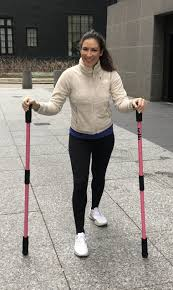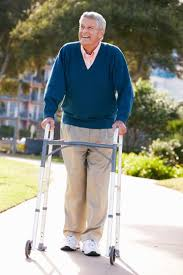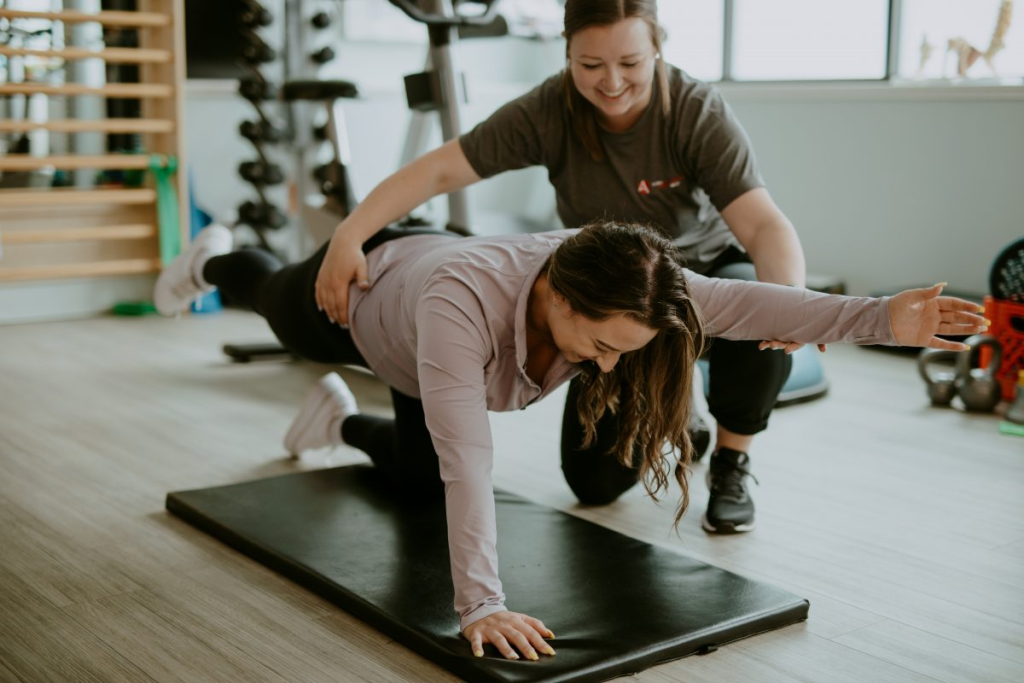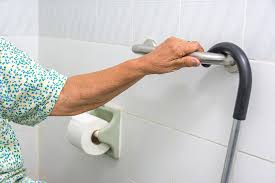As we get older, the risk of falling increases and these falls can lead to serious injuries that affect our overall quality of life. This makes it crucial for seniors to adopt fall prevention strategies and engage in physiotherapy programs that focus on improving balance, strength, and mobility. In this post, we’ll explore how physiotherapy can assist older adults in maintaining their independence and overall health by reducing the risk of falls, allowing them to manage the challenges of aging with confidence and peace of mind. Falls can happen unexpectedly, at any time or season.
Recent statistics indicate that falls are the leading cause of injury among Canadians aged 65 and older. Don’t wait for a fall to take a toll on your life—seek the support you need today and continue to live life to the fullest.
How can physiotherapy help you prevent falls?
Physiotherapy is a healthcare approach that focuses on improving physical function, mobility, and overall well-being. It plays a vital role in preventing falls among older adults by addressing the physical and functional factors that contribute to fall risk. Physiotherapists assess each individual’s specific needs and risk factors, creating tailored treatment plans that may include exercise programs designed to enhance balance, strength, gait, and mobility, along with providing education on fall prevention techniques. The following steps outline the interventions a physiotherapist may use to help prevent falls:
- Evaluating Fall Risk: The initial step in fall prevention is to assess the individual’s specific risk factors. A physiotherapist will examine an older adult’s physical condition, mobility, balance, and strength, identifying areas of concern that need attention through targeted exercises and therapy. Physiotherapy sessions will focus on correcting muscle imbalances (such as leg length discrepancies, strength, and flexibility), improving posture, and enhancing gait, balance, and coordination.
- Strength and Resistance Training: Strength training is a key component in fall prevention, as it helps to fortify the muscles that support posture, balance, and alignment. A physiotherapist can design safe and effective exercise routines that target core strength, enhance bone density, and improve joint flexibility, all of which help reduce the risk of falling.
- Balance and Coordination Training: Exercises focused on balance and coordination are critical in lowering fall risk. Physiotherapy sessions often include activities such as standing on one leg, heel-to-toe walking, and reaching movements to improve spatial awareness, proprioception, and sensory feedback. A physiotherapist can tailor a program that enhances balance, boosts confidence, reduces swaying, and improves reaction times, all of which contribute to fall prevention.
- Assistive Devices: Physiotherapists are crucial in recommending the right assistive devices to enhance mobility and reduce the risk of falls. These may include mobility aids such as canes, walkers, or walking poles, which provide stability and help older adults feel more secure while moving, thereby improving their ability to perform daily activities safely.
- Community Education: Physiotherapists also play a key role in educating older adults and their families about fall risks and prevention strategies. Through educational programs, they teach individuals how to protect themselves from falls, identify and address environmental hazards, and make lifestyle adjustments that can lower the risk of falling.


What are the benefits of physiotherapy for fall prevention in adults?
First, physiotherapy can enhance physical function, balance, strength, and mobility, reducing the likelihood of falls.
Second, it helps increase confidence and motivation, which encourages older adults to stay active and lessens their fear of falling.
Third, physiotherapy promotes overall health and well-being by addressing physical, emotional (such as fear and anxiety), and social factors that may prevent seniors from exercising or engaging in social activities.
Lastly, physiotherapy supports older adults in maintaining their independence, autonomy, and quality of life by keeping them active, engaged, and fulfilled.
Falls are a widespread yet preventable issue among older adults. Physiotherapy plays a crucial role in fall prevention, offering a comprehensive approach that includes physical assessment, customized exercise plans, and education. By targeting the physical and functional factors that contribute to fall risk, physiotherapy helps older adults preserve their mobility, function, and overall well-being, leading to an improved quality of life.
Are Balance exercises beneficial to prevent falling?
Falling can be a scary and sometimes dangerous experience, especially for those who are older or have underlying health conditions. That’s why it’s essential to take proactive measures to prevent falls from happening. One important method is balance exercises. During a physio appointment, a physiotherapist/kinesiologist can guide individuals through exercises that focus on improving balance and stability. These exercises can help increase strength, coordination, and spatial awareness, all while reducing the risk of falls.
How can Physio help me stop falling?
Physiotherapy helps reduce the risk of falls by targeting the root causes related to balance, strength, and flexibility. In a physiotherapy session, you’ll collaborate with a skilled physiotherapist who will assess any weaknesses and create a customized plan to address them. This plan may involve balance-improving exercises, strength-building routines, or practicing functional movements (like navigating stairs and ramps) that are often linked to falls.
How can we manage fall prevention for the elderly at home?
Fall prevention is essential when caring for older adults. One effective approach is to schedule a physiotherapy appointment, where a healthcare professional can provide expert guidance on creating a safer home environment. Physiotherapists can recommend exercises to strengthen muscles and improve balance, as well as suggest assistive devices like grab rails or walking aids. By taking the right precautions, we can help our elderly loved ones live safely and confidently in their own homes.
What are the right types of equipment to prevent falls?
If you’re unsure about which equipment is right for you, it’s a good idea to book a physiotherapy appointment. A physiotherapist can assess your needs and provide personalized recommendations based on your unique balance and mobility challenges. During the session, they may suggest assistive devices like canes, walkers, or grab bars to help improve your safety and mobility.
About Authors
Dr. Muhammad Mahmood Ahmad is a Spinal as well as an Orthopedic Surgeon with over 14 years of experience currently practicing at Razia Saeed Hospital, Multan.






